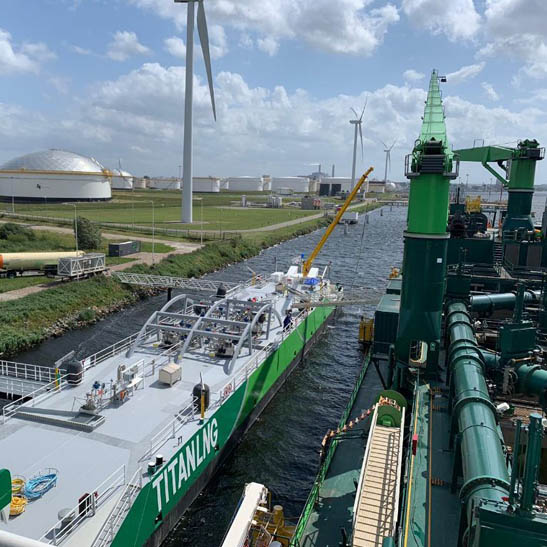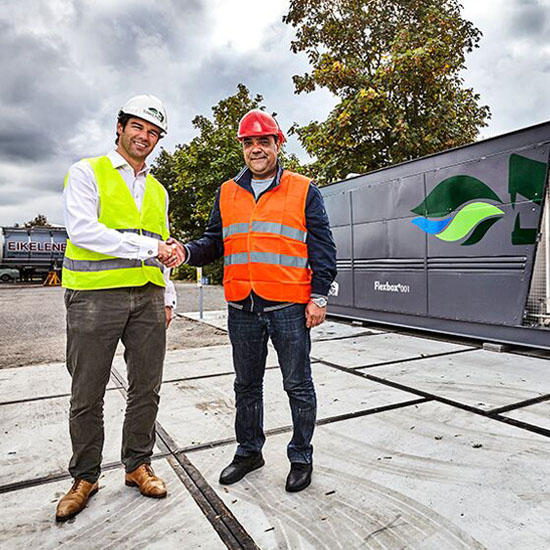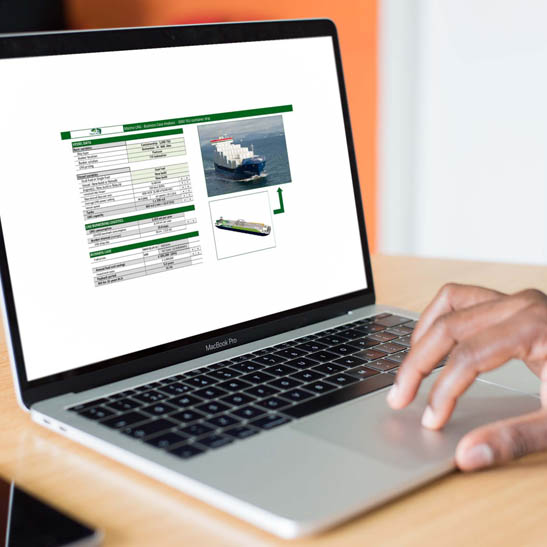Liquefied Natural Gas, or LNG, is natural gas that has been cooled at atmospheric pressure to a temperature of -160°C. As the gas changes into a liquid, the volume is reduced by around 600 times. Natural gas consists for the most part of methane. This can also be produced from biological sources and for the future it can be produced from syngas by combining hydrogen and carbon dioxide.
The liquid enables easy transportation over long distances without a pipeline. This makes it commercially feasible to transport large volumes of gas in a ship or truck.
LNG is the only environmentally friendly and cost-effective alternative to conventional oil-based fuels like HFO, Diesel and MGO. LNG is an odourless, non-toxic, non-corrosive, liquid that does not pollute land or water resources when spilled.
Relatively low gas prices and new global regulations will significantly increase the uptake of LNG. For more background please find a link here to DNV GL’s view on the future of energy use up to 2050. The new energy forecast suggests that in almost all scenarios LNG will be the dominant marine fuel in the market. Titan LNG supports its customers – both shipping and industrial companies – on their pathway to cleaner transport and production processes.




